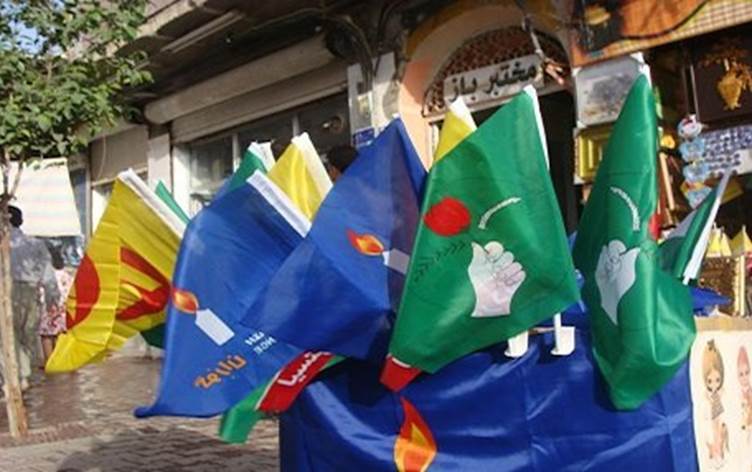Some Political Parties in Iraqi Kurdistan Still Await Licenses

By Arkan Ali
SULAIMANI, Kurdistan Region – Several political parties in Iraq’s Kurdistan Region complain they have been denied a license to operate, including the Kurdistan Democratic Solution Party (KDSP), which is affiliated with the militant Kurdistan Workers Party (PKK) in Turkey.
The autonomous enclave’s interior ministry said it has so far granted legal permits to 38 political parties, and that licenses for eight others were still pending.
“So far, our application for legal status has been denied twice,” said Muhammad Abdulla, a KDSP official. “The interior ministry told us the legality of KDSP is questionable, but I don’t know what this means,” he said.
Founded in 2002, KDSP is affiliated with the PKK. Even though the party is not licensed to operate legally in Kurdistan, it was allowed to participate in the 2005 election, when it failed to win a single parliamentary seat.
“The denial of our applications is rather political than legal,” Abdulla claimed, adding that neighboring countries were influencing Kurdistan authorities.
The Kurdistan Leftist Party is another newly formed political party that has failed to obtain a license since its formation in 2011.
Nawroz Sidiq, a member of the party’s politburo, maintained that unlike the other political parties, his group has pledged to promote pluralism.
He said the party had applied for legal status two years ago, but has not heard back from the ministry. “It is clear that the ministry doesn’t want to grant us a license. We will use other means if the authorities continue to ignore us,” he warned.
Interior ministry official Khalil Abbas said that his department, which deals with political parties, has revoked the licenses of only two parties since 2003, when the Kurdistan Region gained autonomy.
“The Kurdish Labor Party and the Democratic Movement of Kurdistan’s licenses were revoked due to legal and their own domestic issues,” he said.
“Every political party that meets the interior ministry’s requirements must be granted legal permission to conduct its political activities,” said Jabar Muhammad, the head of the Political Science Association. “Otherwise they should be instantly informed that their application is denied, instead of making them wait forever,” he added.
